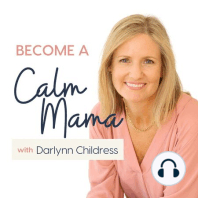23 min listen
Developmental Stages Birth To Teens
ratings:
Length:
37 minutes
Released:
Apr 6, 2023
Format:
Podcast episode
Description
In today’s episode, I’m walking you through all of the developmental stages of your child’s life, all the way from birth through adolescence to 18 or 19 years old. This is going to help you really understand what's normal at different stages or ages, what kids are struggling with and how you can support your child's development.Developmental StagesThe information I’m sharing today is based on the work of psychologist Erik Erikson, who outlined eight psychosocial stages of development. Birth to ToddlerhoodDuring the first year and a half of life, your child is trying to figure out if they can trust the people around them. Am I safe? Are the people around me safe? Are they taking care of me?This is where trust is built with the primary caregiver. It’s also the time when they are struggling and learning to self-soothe. As you can probably guess, the child needs a lot of support in this stage. As a parent, your role is to meet their basic needs in a loving environment. Showing that you are trustworthy and helping them to sleep, stay warm, stay clean, feed them and help them self-soothe.When you can show your child that they can count on you, they will form a secure attachment and feel safe in the world. Late ToddlerhoodFrom about 18 months to 3 years, the question becomes something more like, “Can I do things myself?”They are working to develop control over their body. This shows up in areas like toilet training, picking out their own clothes, deciding what they want to eat, what cup they drink out of, etc. It can sometimes seem like they’re being difficult, but they’re really just trying to assert control over their body and their choices. They also tend to move very slowly at this stage - struggling with getting dressed, putting on their socks and shoes, buckling their seat belt, etc.As the parent, you want to help them get to the answer of, “Yes, I can do things myself.” This helps them build self-confidence. The challenge for you is to slow down and let them do it.Preschool YearsDuring the preschool years, from about three to five years old, kids start to ask themselves, “Am I good or bad?”They use play as a way to experiment with this in different environments. And it’s an interesting balance because they want to feel like they have some power over their environment but also want boundaries to help them learn what is and isn’t okay.They might act very bossy and powerful, but they also feel very sensitive to our feedback. They can’t really tell the difference between their identity and their behavior. So when we say, “I don’t like when you do that,” they hear, “I don’t like you.”The goal in this stage is avoid excessive criticism and to speak the identity we want for them: You are a good listener, you follow directions well, you are a good kid, etc. It can be challenging to give them power over their environment while still keeping them safe, so we can give them lots of choices. This way, you can limit the options they have while giving them the power to choose.As a parent, you don’t have to change the environment for them. You don’t have to fix their problems. You’re giving them power and choice, so they learn how to live within their environment.Elementary SchoolOnce kids get into elementary school, they start to ask, “Am I good at things?”Of course, we want them to answer “yes”. At this stage, they start to figure more things out outside of the home - in school, sports, enrichment activities, church, etc. They also start being evaluated on their performance through grades and scores.Their goal is to develop a sense of competency in...
Released:
Apr 6, 2023
Format:
Podcast episode
Titles in the series (100)
Rethinking Consequences by Become A Calm Mama
